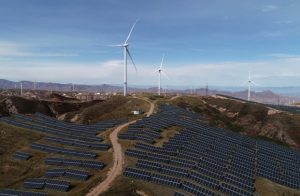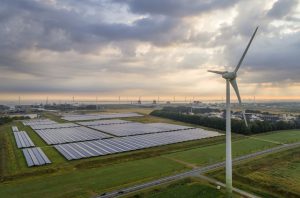Assets worth $557 trillion could be left ‘stranded’ by 2050 if the world continues to invest in fossil fuel-powered industries, a new study has found.
‘Stranded assets’ refer to resources and infrastructure related to fossil fuel industries — such as pipelines and refineries — that will, in a decarbonised world, become unusable before reaching the end of their economic lifetimes.
The study, by UK’s Exeter and Lancaster universities, also factors in the cost of human capital at risk of being left ‘stranded’ – workers in polluting industries that would potentially lose their jobs and future incomes.
Also on AF: Booming Solar Puts 2030 Renewable Energy Goals ‘Within Reach’
The study examines two scenarios to compare potential losses to global economies from fossil fuel financing — one, in which investments in the industry stopped in 2020 and another in which such funding continues until 2030.
Assuming the world reaches its net-zero goal by 2050, stopping investments in carbon-intensive assets by 2020 would have left $117 trillion of global capital at risk, the study found.
But that number becomes nearly five times worse — $557 trillion — if global carbon-intensive investments continue for another decade. That number would account for 37% of total global capital today, researchers in the study said.
The potential losses could be reduced if workers in fossil fuel-led industries are retrained and related assets are retrofitted, researchers said.
Still, the estimates presented by the study are far bigger than any previous forecasts.
A 2022 assessment — led by researchers at MIT — proposed a much tamer number of $30.6 trillion at risk from potential ‘stranded assets’ in a 2050 net-zero scenario. That number, however, was restricted to the value of “untapped fossil fuel output”.
Furthermore, given the scale of global capital at risk it has so far been difficult to make an assessment of potential ‘stranded assets’ at scale. That makes the finding of this latest study unprecedented.
People and institutions — such as banks, pension funds, insurance companies and universities — are likely to bear the brunt of the losses from these ‘stranded assets’, as rapid global decarbonisation could lead to fall in the stock prices and bonds of fossil fuel companies.
The ‘human’ factor
But the biggest chunk of the losses will likely be borne by workers in carbon-intensive industries. Fossil fuels employ almost 32 million people across the world at present, according to the International Energy Agency.
The study noted that human capital makes up 67% of global capital but has still “been largely absent from discussions on stranded assets.” And if existing fossil fuel workers are not re-skilled in time, it creates a risk of the world facing a jump in unemployment and labour shortages simultaneously.
“What our research shows is that it makes practical sense, not just ethical sense, to embrace the transition now rather than resist it,” Daniel Chester, one of the researchers from the study, told Exeter University.
“Instead of delaying the transition, policymakers should be transforming educational and financial systems – creating new opportunities, especially in regions dependent on fossil-fuel industries – to ensure communities are not left behind,” Chester added.
He also emphasised that delaying the ‘net-zero’ transition will not solve this issue as “the impacts of climate change itself are likely to be far more costly.”
Chester is among a long-line of climate activists that have called for a ‘just transition’. The just transition calls for making the interests of those most vulnerable to losses from decarbonisation as central to policy initiatives.
Those considered most at-risk include workers, vulnerable communities, suppliers of goods and services, specifically small and medium-sized enterprises (SMEs), and consumers, according to the London School of Economics.
“An orderly transition would place communities in a good position to take advantage of new opportunities as the economy changes – while a disorderly one could put some areas at risk of post-industrial decline,” Cormac Lynch, another researcher in the study said.
“The longer we wait, the more disorderly the transition will be.”
View this post on Instagram
- Vishakha Saxena
Also read:
Green Investment Hindered by Poor Demand For Low-Carbon Products
Governments Spend $2.6tn on Climate-Harming Support – Guardian
Oil And Gas Sector Way Off Net Zero Track: S&P Global
Oil Nations Blocking COP29 Efforts on Fossil Fuel Phaseout – FT
Global Wind Turbine Demand Soars on China Energy Push
Electrification Cuts Oil, Gas Production Emissions by 80%
Online Misinformation Harming Climate Change Effort, UN Chief Says
























